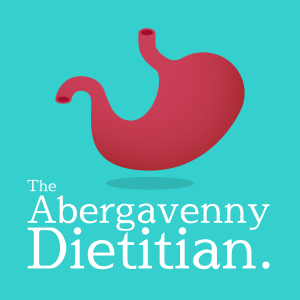Rheumatoid Arthritis (RA) is an autoimmune condition that can affect organs such as the eyes, lungs and heart as well as the joints. Several joints can be affected at the same time, usually symmetrically (on both sides of the body). RA causes the joint lining to become inflamed, swollen and painful.
Many people with RA understandably spend a lot of time researching ways in which they can help themselves to improve their condition, reducing their pain and improving their quality of life. The problem is, there is a huge amount of information and misinformation out there on the internet.
A minefield of information
I always say to patients – you know that if you do an internet search for “how to lose weight” there will be a million and one answers, some more crazy (and possibly dangerous!) than others. Unfortunately, it is the same for conditions such as RA, irritable bowel syndrome and chronic fatigue. The internet makes no distinction between high-quality, well-regulated study trials, small studies carried out by possibly biased researchers, anecdotal evidence and people’s personal opinion.
What the latest research says
The NICE Guidelines (National Institute for Health and Care Excellence: Clinical Guidelines) on RA were originally written in 2009 but were reviewed in 2017 and provide a good summary of the best information to date.
To save you the hassle of reading those guidelines yourself, I have picked out a few of the main takeaways below.
Maintain a healthy weight the slow way
The most important relationship between diet and arthritis is weight. Excess weight can make some medications for RA less effective, therefore meaning the disease is more active. If you know you need to lose a little weight, do this slowly and steadily with healthy eating plus regular exercise (at what ever level you can manage).
#1: Vegan diets: more studies needed on RA benefits
Some studies have showed that people lose weight and experience less joint pain, swelling and morning stiffness on a vegan diet. However, these tend to be small studies, and limited in number. A properly balanced vegan diet involves a lot of work, involves the risk of nutritional deficiencies and is difficult to stick to for many people.
More research is needed see how effective a fully plant-based diet really is, and whether the potential benefits would outweigh the risks. There is a suggestion that the benefits are at least partly due to the fact that vegans have better gut health, and this can perhaps be gained in other ways.
#2: Elimination or “allergen-free” diets: Only under medical supervision
There is some suggestion that specific foods (e.g. sugary drinks and foods) can trigger symptoms in some people. For this reason, there is an idea that many foods should be removed from the diet, and introduced one-by-one to see which ones are problematic.
Elimination diets carry a high risk of nutritional deficiencies and should only be done under the supervision of a Registered Dietitian. Fasting is another high-risk strategy that should definitely not be attempted without guidance from a properly qualified health professional.
#3: The Mediterranean Diet: The best option
The best evidence is for the Mediterranean diet. This is one based on wholegrains (such as wholemeal bread, rice and pasta), plenty of vegetables and pulses, salad and fruit, fish, smaller amounts of good-quality meat and healthy fats such as olives and rapeseed oil.
Research has shown an improvement in swollen and tender joints, morning stiffness and pain and overall feelings of improvement as well as biological markers in people with RA following the Mediterranean diet.
Can supplements help my Rheumatoid Arthritis?
It is important to include some iron-rich foods in the diet to help avoid anaemia; however taking iron supplements is NOT recommended except in cases of diagnosed iron-deficiency anaemia.
It is very important to get enough calcium, to ensure bones stay strong and healthy – this is even more important when taking glucocorticoids to treat RA. Calcium supplements may be useful for those who do not eat a lot of dairy foods.
Vitamin D works alongside calcium and the current government guidelines are that we should be taking a Vitamin D supplement – see my last blog post for more information on Vitamin D. There is no strong evidence for taking any other vitamin or mineral supplements.
Can herbal remedies help my Rheumatoid Arthritis?
There are a huge list of herbs which have attracted attention for treating RA – for example Thunder God Vine (Tripterygium wilfordii Hook F extract), turmeric, cinnamon, nigella, feverfew, willow bark, rosehip and many, many more. Thunder God Vine is the most likely to have some effect; however, this is still only evidence from low-quality studies and, in any case, adverse side effects mean this cannot be recommended.
There is not enough research information to actually recommend the use of ANY of the other products. However, some people feel that, by taking a herbal supplement, they are at least doing something to help themselves. For this reason, I would never criticise anyone for taking alternative remedies – providing it is one that cannot do any harm. What I WOULD worry about is people following unbalanced diets, spending a lot of money they can’t afford on supplements and/or taking nutritional advice from people who then try to sell them supplements as part of their so-called ideal regimen.
Conclusion: stick to a Mediterranean diet for now
In summary, there are no completely clear-cut answers to this issue.
The closest I could get to a general, overall conclusion would be to avoid extreme diets and food exclusions that could lead to nutritional deficiencies and instead lean towards a healthy Mediterranean-style diet.
The Mediterranean Diet is:
- helpful in weight management
- good for reducing cardiovascular risk
- probably beneficial for joint symptoms
- easier to stick to in the long-term than more restricted or complicated regimens
- carries no safety concerns of negative effects
If you want to try a more complex regimen, then don’t try it alone!
This article has only skimmed the surface of a huge topic. If you would like a plan tailored to you, consult a Registered Dietitian, who you can be sure will use safe, evidence-based advice. Ask your GP for a referral …. or find a Freelance Dietitian through the Freelance Dietitians Group.
Of course you are welcome to make a Zoom video appointment with me, as well. Whichever, make sure you check the HCPC register to ensure that your Dietitian is properly qualified and registered!


